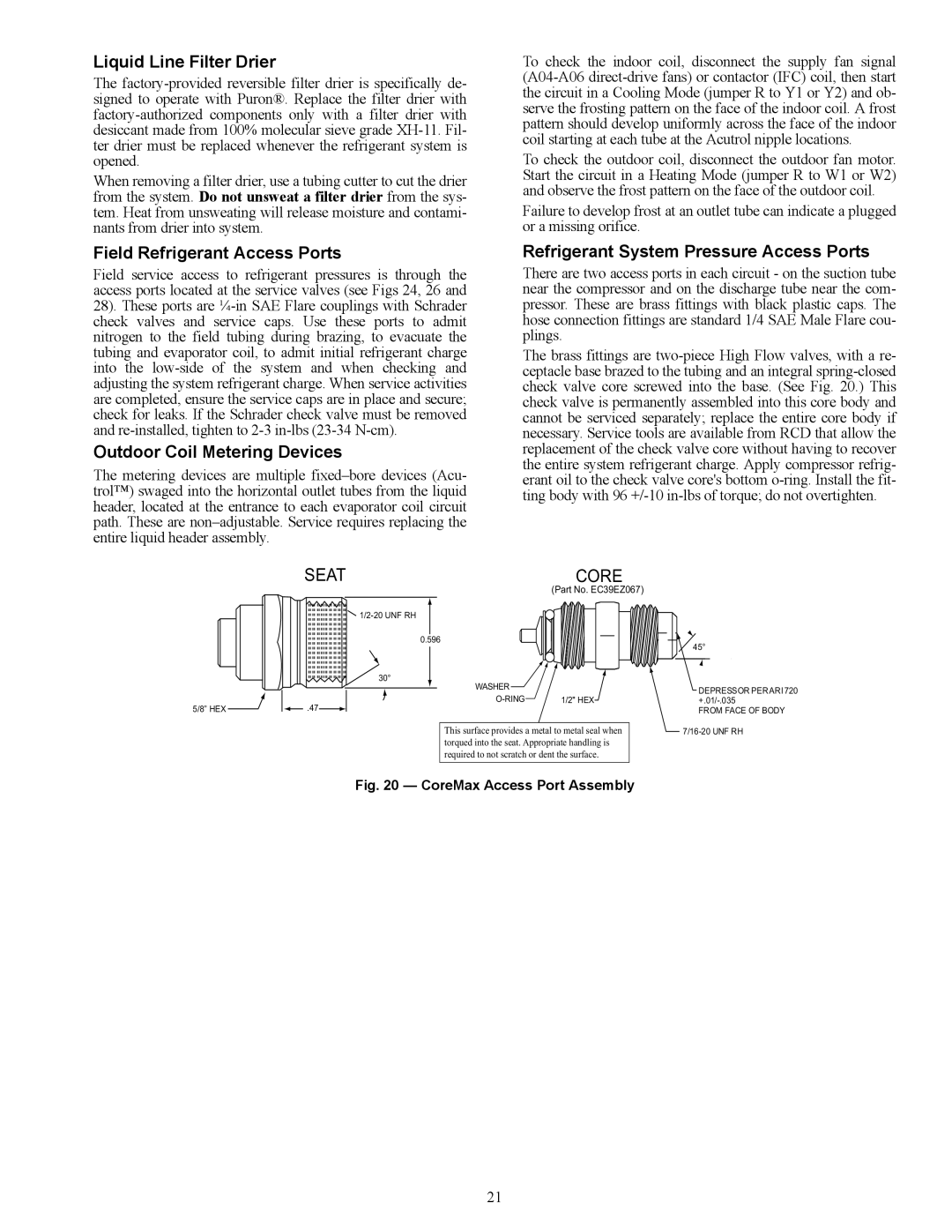38AUQ specifications
The Carrier 38AUQ is a versatile and efficient air conditioning unit designed to meet a variety of residential and light commercial cooling needs. Known for its advanced technology and robust performance, the 38AUQ model showcases Carrier's commitment to sustainability and energy efficiency.One of the standout features of the Carrier 38AUQ is its use of variable-speed inverter technology. This allows the unit to adjust its cooling output in response to the temperature demands of the environment. By operating at multiple speed levels, it minimizes energy consumption and maximizes comfort, ensuring a consistent, quiet cooling experience.
The 38AUQ is equipped with a high-efficiency compressor, which helps to further enhance its energy performance. This component plays a critical role in ensuring that the unit operates smoothly, reducing both electricity bills and the environmental impact. Efficiency ratings often exceed industry standards, making the 38AUQ a suitable choice for those looking to reduce their carbon footprint while enjoying a comfortable indoor climate.
In terms of design, the Carrier 38AUQ boasts a compact and sleek profile that allows for easy installation in a variety of settings. Its durable construction is built to withstand harsh weather conditions, ensuring longevity and reliability. Additionally, an advanced air purification system is integrated, featuring filters that capture airborne particles, improving indoor air quality.
The unit also offers a range of smart features, including compatibility with smart home systems. Users can remotely control their air conditioning via smartphone apps, allowing for customizable settings and energy management from anywhere. This connectivity aligns with modern living preferences, enhancing convenience and control.
Furthermore, the Carrier 38AUQ is designed with noise reduction in mind. The advanced sound-absorbing materials and quiet operation of its fan and compressor make it one of the quieter air conditioning options on the market. This is particularly beneficial for residential applications, where noise can be a significant concern.
Overall, the Carrier 38AUQ combines cutting-edge technology, energy efficiency, and user-friendly features, making it a top choice for both homeowners and small business operators seeking reliable cooling solutions. Its commitment to performance and efficiency makes it a standout model in the Carrier air conditioning lineup.

